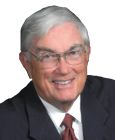Alcoholism
An Avalanche of Problems
Recovery requires inner resolve to combat the overwhelming monsters of the past.
Posted November 21, 2019

Note to readers: I am always deeply moved by this harrowing account of early recovery as told by my coauthor James B. whose story is told throughout our book, The Craving Brain: Science, Spirituality, and the Road to Recovery. — W. Anderson Spickard Jr., MD
Even before I opened my door, I could hear the telephone ringing—a sound that I had grown to hate. It was almost always a collection agency, wanting me to pay up on a credit card, a student loan, or a medical bill. During the years of my active addiction, I had gone underground, letting my debts accumulate. With late fees and interest, I owed tens of thousands of dollars, and now that I was no longer missing in action, everyone was coming after me.
My roommate was fixing a sandwich, and he glared at me as I walked past the kitchen to my bedroom. He was tired of listening to threatening messages on the answering machine and even being yelled at by my debt collectors. Besides, I still owed him money, too.
With my restaurant job, it was all I could do to put gas into my car and pay my current bills and rent. Every day I was sinking deeper into debt, and there was no solution in sight. Even my mother had refused to give me a loan. She didn’t trust me and was waiting for me to pay back her previous loan—the one that had saddled her with an almost crippling debt.
I changed into my work clothes and got back in my car, hoping there was enough gas to make it to the restaurant. My tires were worn down, and it was only a matter of time before one blew out. Then I wouldn’t have any transportation at all.
As I drove to work, I wondered if recovery was always going to seem like a steep, uphill climb—carrying a 100-pound pack. My life had never seemed more flat, and I had almost no ability to feel pleasure. Even food tasted terrible, partly because cocaine had eaten away the lining of my nose.
I could still feel pain, and there was lots of it. My back had been injured in a motorcycle wreck. (Years earlier, I had been riding drunk at the beach, and I had slid under the rear end of a car that had pulled out in front of me.) This injury had grown worse with time, partly because I had slept so many nights passed out in awkward positions. When I ate, my stomach felt on fire, and my face hurt because of the cocaine damage to my sinuses. My side teeth had rotted completely away from too much alcohol and a bad diet—like most addicts, I was heavy into sugar and carbohydrates—and my remaining teeth had untreated cavities. And there was nothing I could do about any of it, because I had no money to pay for a doctor or dentist.
My emotional life was a roller coaster. As a teenage boy in the body of a thirty-two-year-old man, I had no adult skills for regulating my feelings. Almost anything sent me into a deep funk from which I didn’t know how to escape. Without the numbing properties of alcohol, the emotional wounds of my childhood, including sexual abuse, had also come rushing back, seeming more unbearable than ever.
At the same time, I was experiencing intense grief and regret for all my lost years and missed opportunities—especially my job in sports broadcasting. My high school and college friends had prestigious occupations and were starting families. Me? I was an entry-level waiter whose girlfriend had dumped him because he couldn’t stay clean.
But of all the bitter pills that I had been forced to swallow, the worst was the knowledge that I had damaged my own brain. “You may not be the most handsome guy, or the most athletic,” I had always told myself, “but you are smart and a hard worker.” Now, when I most needed a good mind and the ability to stick to a task, I had trouble thinking and motivating myself. All the functions of my brain, including memory, seemed like they were encased in cotton.
In an odd way I even missed my cravings, which were coming less and less frequently. They had given my life focus and meaning, and as if they were themselves a drug, they had medicated my physical and emotional pain. Once obsessing over alcohol and cocaine had kicked in, every other thought and feeling was driven from my mind.
Altogether, it was like the saddest country music song ever—and it was happening to me.
Pulling into the restaurant parking lot, I reminded myself that there were consolations. I wasn’t drinking or using cocaine. My new normal was sobriety, and my cravings were separated by days and weeks instead of hours. With my sponsor’s guidance, I had finished working the First Step and had moved on to Step Two in my journal. Looking back through its pages, I could see that my writing was becoming progressively more legible and my sentence structure more complicated and expressive.
I had also written a letter to the owner of the radio station where I had worked as a sports broadcaster. Explaining that I wasn’t looking for my job back, I had thanked him for giving me an extraordinary opportunity and had apologized for letting him down.
There was another plus. Now that my emotional connection to drugs was beginning to weaken, my relationships with people were growing stronger. I called my sponsor or a home group member almost every day, and older members in my home group invited me to socialize with them on a regular basis. Because they had been there themselves, they understood that I was in the vast gray wilderness of early recovery.
They also knew that I would start using again if I didn’t find a way to fill the emptiness. When I missed a couple of meetings in a row—sometimes I was too depressed to get out of bed—they called or knocked on my door.
“We are in the lifeboat together,” they seemed to be saying. “We can’t keep you clean, but we can make it as difficult as possible for you to relapse.” After years of living like a wild animal, one that didn’t even run in a pack, it seemed like a miracle that people were looking out for me.
Now, bolstered by thoughts of my home group’s support, I clocked in at work and greeted my first table with a friendly smile. Set aside your problems and focus on your customers. With enough good tips, you can fill your gas tank and start on next month’s rent.
Halfway through my shift, I saw the hostess heading my way. “There’s a call for you in the office.” I walked to the front of the restaurant, wondering nervously who could be calling me at work.
As soon as I picked up the phone, a bill collector began demanding payment and making threats in a loud and angry voice. My manager could hear him shouting at me from his desk and looked my way with a frown of disapproval.
They had found me at work, and I couldn’t even make a minimum payment. Who knew what they might do next?
I went back to work. As I served water to a new table of customers, I could feel the strengthening of my inner resolve. Yes, I was full of anxiety and fear, and facing an avalanche of problems. But nothing was worse than using again. I couldn’t let anything—not even overwhelming feelings or a wrecked life—throw my recovery off course.
“What can I get you?” As I wrote down their orders, I could sense that something had shifted inside me. My recovery was real, despite everyone’s skepticism—including my own. I had the support of new friends and was beginning to sense again God’s presence in my life. With help, I would find a way to deal with the monsters that I had created.




